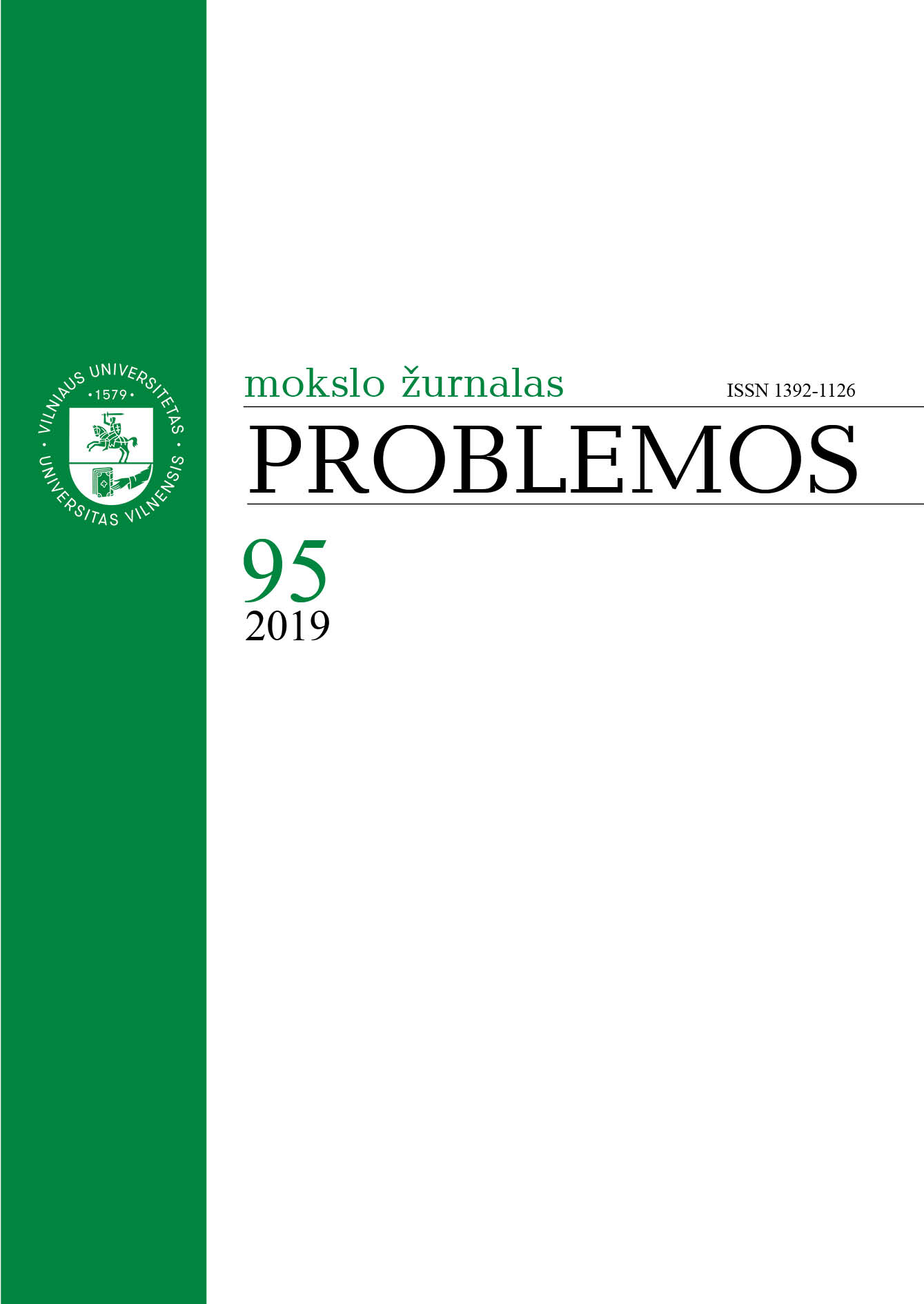Herakleitas: λογος kaip φυσις bylojimas
Heraclitus: Λογος as the Forthtelling of Φυσις
Author(s): Skirmantas JankauskasSubject(s): Ancient Philosphy, Evaluation research, Phenomenology, Ontology
Published by: Vilniaus Universiteto Leidykla
Keywords: φύσις; reality; dreaming; awakening; λόγος; life; sleeping; death; etymology; metaphor;
Summary/Abstract: The article presents a specific interpretation of the Heraclitean Logos. Initially, general ontological and gnoseological assumptions of early Greek philosophy are discussed. The relativity of the boundary between the subject of thought and the object of thought is considered to be the most important feature of this philosophy. Therefore, the Heraclitean aphorisms are treated as phenomenological insights. Following this approach, an attempt is made to explore the content of the main Heraclitean aphorism DK22 B1. The meaning of this aphorism is gradually revealed through other aphorisms of Heraclitus. Since individual aphorisms and their groups open up different aspects of the Heraclitean philosophy, these aspects are consistently discussed in the article. Presuming that early Greek philosophy presents by itself an attempt of theoretical thinking to assimilate the concrete thinking of the time, it is shown that the measure of the same of theoretical thinking determines the three-dimensional concept of reality and poses to the thinker the problem of the existential assuredness. As a philosopher locates himself in the sphere of awakening, and the existential assuredness can be expected only in the sphere of the Logos that satisfies the measure of the same, he is faced with the problem of thematizing this realm of reality. Dream, awakening, and the Logos are treated by Heraclitus as incommensurable realms of reality, so the question arises how to thematize all of them exploiting one and the same language. This problem is further complicated by the fact that Heraclitus prioritizes the object of thought, and therefore is forced to over-emphasize the etymology of language. It is shown that Heraclitus copes with the above-mentioned problem exploiting total metaphoricalness of ontologically treated language, or reality itself. The article concludes with the inferences about the mission of Greek philosophizing and the existential obligations imposed upon a man by the hierarchically treated three-dimensional concept of reality.
Journal: Problemos
- Issue Year: 2019
- Issue No: 95
- Page Range: 8-21
- Page Count: 14
- Language: Lithuanian

